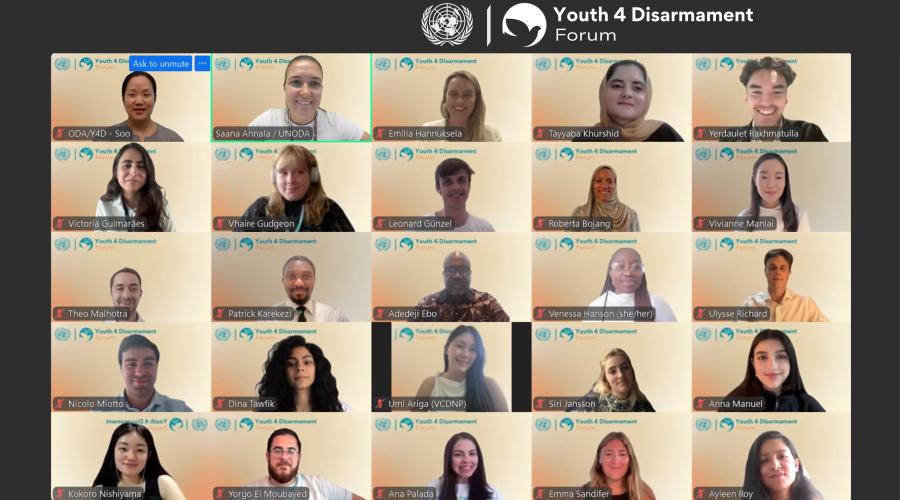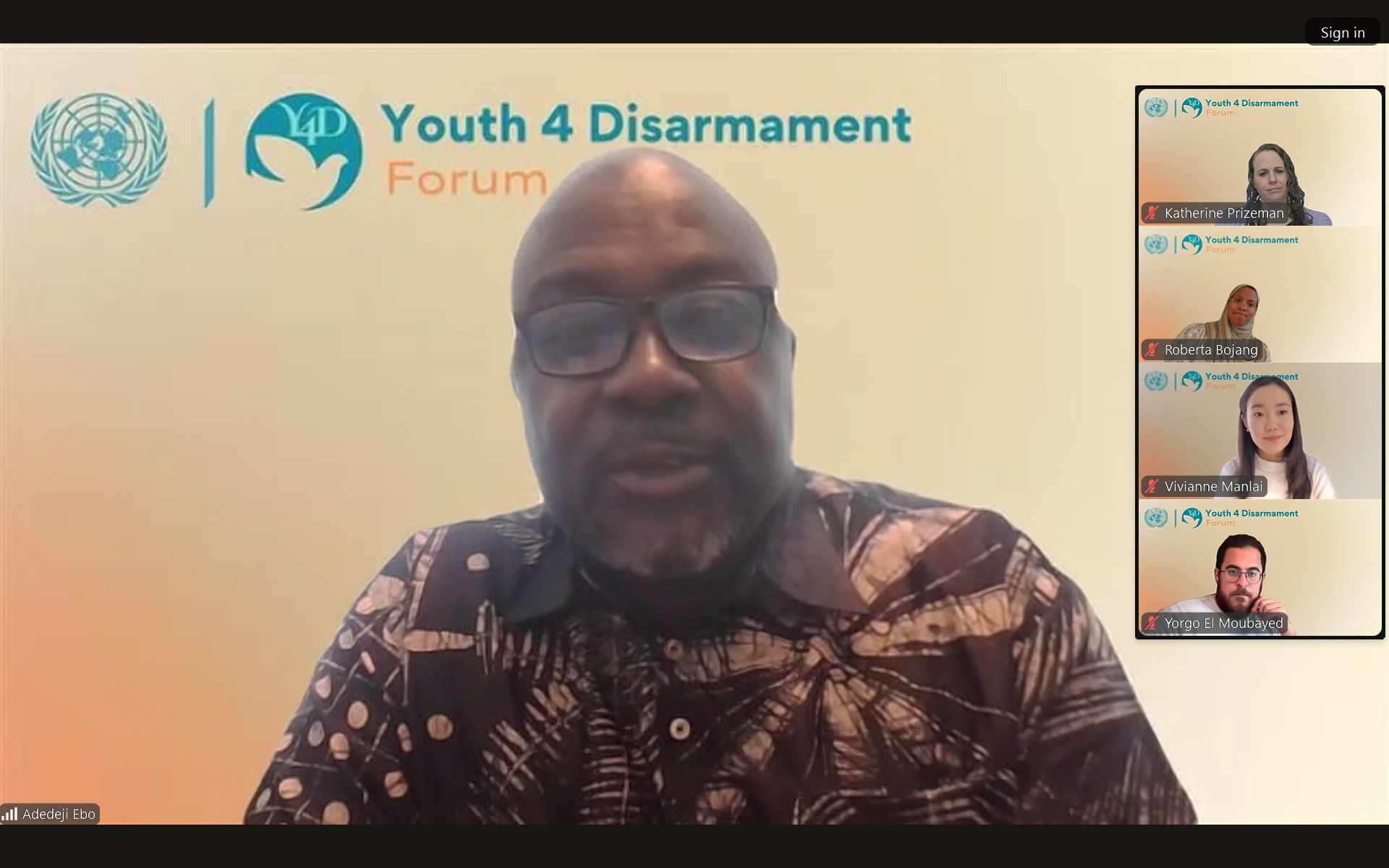News story
Youth4Disarmament Forum Kicks Off with Dialogue on Nuclear Risks and Emerging Technologies

The United Nations Office for Disarmament Affairs (UNODA) kicked off the Youth4Disarmament Forum initiative with an introduction webinar on 24 June 2025. The session aimed to create a dynamic platform for discussion on nuclear risks, technological evolution, and the role of youth in shaping disarmament diplomacy, bringing together young advocates and experts in the field. The session marked the continuation of UNODA’s work to promote meaningful youth participation towards action and innovation driven multilateralism.
The first webinar opened with remarks by H.E. Mr. Sangjin Kim, Deputy Permanent Representative of the Permanent Mission of the Republic of Korea to the United Nations. As a long-time supporter of the youth, disarmament and non-proliferation agenda, the Government of the Republic of Korea is generously funding the Youth4Disarmament Forum. Highlighting the contribution that young people can make to disarmament diplomacy, Ambassador Kim described the Forum as a necessary space for youth leadership. He noted that today’s cohort, equipped with an early exposure to global opportunities and challenges, has a unique responsibility to shape the future of international peace and security.
Following the opening remarks, Ms. Katherine Prizeman, Officer-in-Charge of the Science Technology Unit, UNODA and Mr. Christopher King, Chief of Weapons of Mass Destruction Branch, UNODA, provided an overview of current risks and opportunities presented by emerging technologies in the field of disarmament and non-proliferation.
Ms. Prizeman discussed how various developments in science and technology, including those related to artificial intelligence (AI), hypersonic missiles, and autonomous systems have impacted international peace and security. For example, she noted the threats posed to nuclear weapons systems infrastructure through the malicious use of cyberspace.
Mr. King noted some upsides to the use of AI in the disarmament field, including the potential for improved arms control monitoring. However, he warned that the new technologies posed dangerous challenges, particularly given that they could “compress decision-making” to the point that automated systems might override human judgment in the event of a nuclear crisis. King also stressed that AI and other emerging technologies threatens to widen conventional military capabilities between States to the point that smaller States may consider nuclear weapons development as an asymmetric response to maintain a balance of power.

During the Q&A session, the youth participants voiced wide-ranging questions and concerns over the threat posed by cruise missiles, super-fuse technology, and autonomous underwater vehicles and their implications for international peace and security. Mr. King emphasized the need for transparency and confidence-building measures, especially among nuclear weapon States, and called, as a first step, for Cold War-era Transparency and Confidence Building Measures (TCBMs) to be reconsidered and modernized for the present day. Ms. Prizeman argued that UNODA’s work is critical in establishing norms to address the rapid developments related to the application of AI and new technologies in the military domain.
The latter part of the webinar focused on youth reflections, where participants highlighted the vital role of youth in disarmament diplomacy. One of the youth advocates argued for the importance of cultural diversity in disarmament discussions, while another participant emphasized pushing for long-term, intergenerational strategies to address challenges in the disarmament field.
During the closing session, Mr. Adedeji Ebo, Director and Deputy to the High Representative, emphasized UNODA’s commitment to youth inclusion. He noted that as technological change accelerates and the risk of nuclear weapons use grows, disarmament efforts must adapt to reflect these changes to effectively confront them. Stressing that “investment in youth is lifesaving,” Mr. Ebo noted that the Youth4Disarmament Forum provides young leaders with a platform to innovate bold ideas to affect positive change in the peace and security spaces.
As the preparations leading up to the Forum continue, UNODA encourages participants to build on this momentum by staying engaged, forming networks, and bringing fresh thinking to the future of multilateral disarmament. Stay tuned in on our website and on Instagram @youth4disarmament as the road ahead of the first-ever Youth4Disarmament Forum continues!
For more information, contact the UNODA Youth4Disarmament Team at youth4disarmament@un.org.
The Youth4Disarmament Forum is a first of its kind initiative organized by the United Nations Office for Disarmament Affairs (UNODA) in partnership with the Stockholm International Peace Research Institute (SIPRI) and the Bulletin of the Atomic Scientists, with support from the Republic of Korea. Aimed at strengthening youth networks in disarmament, the Forum brings together alumni of UNODA youth programs, disarmament advocates, and UN Youth Delegates. This year’s theme explores the nexus between nuclear and emerging technologies. Ahead of the Forum in New York in October 2025, participants are also taking part in a series of thematic webinars, part of UNODA’s ongoing efforts to engage and empower youth in global peace and security.